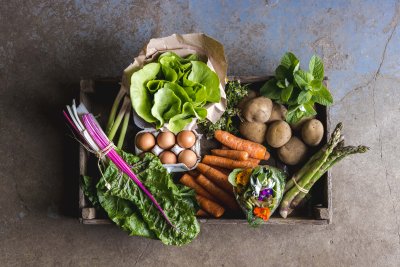Sustain: Sustain The alliance for better food and farming advocates food and agriculture policies and practices that enhance the health and welfare of people and animals, improve the working and living environment, enrich society and culture and promote equity.

CETA's unknown impacts on UK food and farming
The fixation on Brexit has distracted attention from another international agreement with big implications for British food producers.
CETA -- the EU-Canada Comprehensive Economic and Trade Agreement -- hit the headlines briefly when a regional authority in Belgium threatened to derail it, but once it was signed off it sank into obscurity again, and public attention refocused on Brexit. Given that CETA may have significant implications for British agriculture -- in or out of the EU -- the lack of analysis is surprising.
In Canada, there has been more concern. To take just two examples, dairy farmers stand to lose sales worth $116 million, and are awaiting the compensation promised by the Canadian government; and an NGO has calculated that the new unrestricted access rules may undermine Canadian organisations' abilities to specify local food in purchasing contracts.
Meanwhile, the latest news item on the subject on the UK National Farmers Union website was dated 2013. This suggested that the deal would entail liberalising 92.8 % of Canada's and and 93.5 % of the EU's trade lines in agriculture.
Just before the deal was signed, Friends of the Earth Europe produced a paper called CETA's threat to agricultural markets and food quality. It reports, for example, that under CETA the EU’s quotas for Canadian pork and beef imports will increase twelve- to fourteen-fold relative to current levels.
However, whether imports actually increase will depend on the Canadian export industry’s ability to fill the new quota volume without the use of hormones or ractopamine (a controversial feed additive to accelerate the fattening process). This is specified in the deal because production standards are higher in Europe than in Canada. But this adds another layer of uncertainty: if the UK leaves the EU and retains liberal trade rules with Canada, will the higher production standards stay in place?
Find out more here about Sustain's campaigning work for a greener, fairer food system.
Sustain
The Green House
244-254 Cambridge Heath Road
London E2 9DA
020 3559 6777
sustain@sustainweb.org
Sustain advocates food and agriculture policies and practices that enhance the health and welfare of people and animals, improve the working and living environment, promote equity and enrich society and culture.
© Sustain 2026
Registered charity (no. 1018643)
Data privacy & cookies
Icons by Icons8






